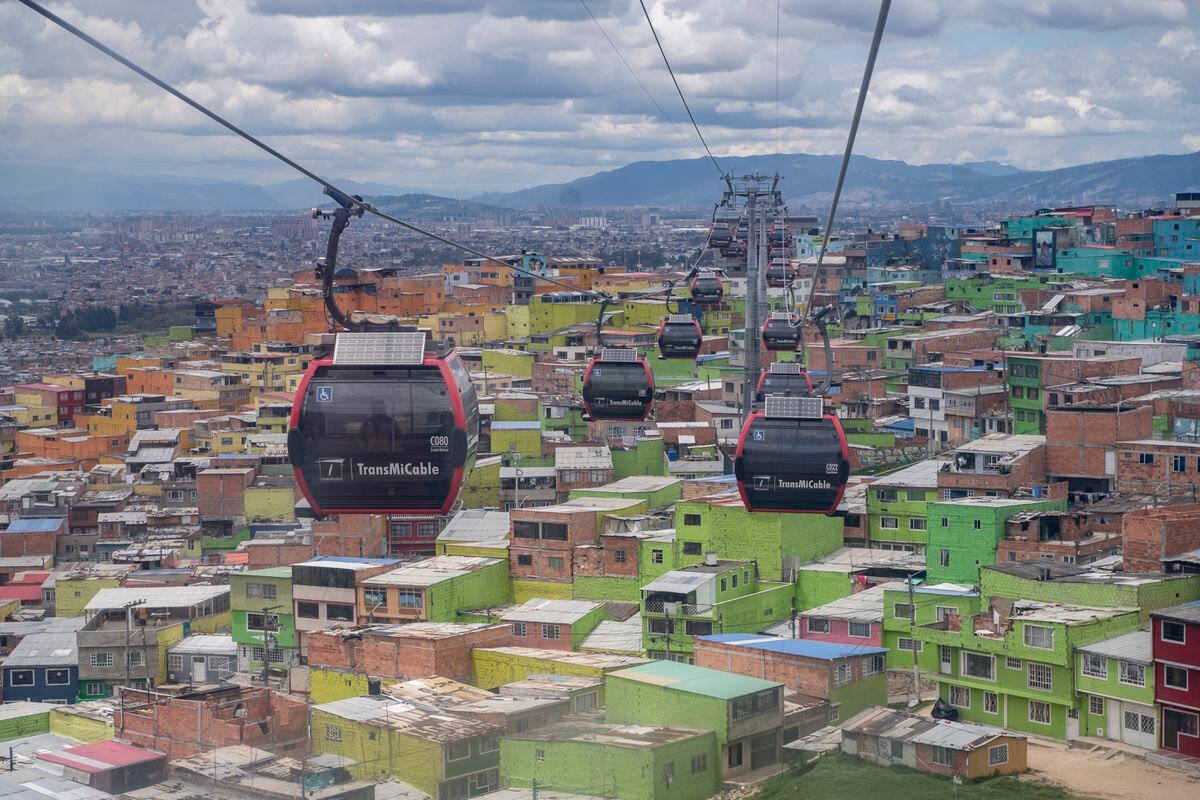EL PAÍS offers the América Futura section open for its daily and global informative contribution on sustainable development.
If you want to support our journalism, subscribe
here
.
In a world full of rapidly increasing existential challenges (polarization and collapse of social trust, uncontrolled human displacement, climate crisis, citizen and food insecurity, economic, racial and gender inequality) sources of hope are few.
In Latin America and the Caribbean there is a tendency to see countries not for what they are (sources of solutions to these challenges) but as overwhelmed by them.
The reality is that the region is critical to building a better global future, particularly when looking at the region through the experiences of its cities and subnational political, social, civic, and private sector leaders.
With more than 80% of its population living in cities, Latin America and the Caribbean is one of the most urbanized regions in the world, and cities, large and small, are indispensable engines of innovation and fundamental for regional integration.
Their policy victories—effectively understood, replicated, and scaled—hold the keys to tackling some of the most pressing challenges facing the planet today.
That is why our two organizations, the Inter-American Dialogue and CAF, came together last year during the IX Summit of the Americas in Los Angeles to convene the first Summit of Mayors of the Americas this week in Denver, Colorado.
It is also why CAF now operates under an expanded mandate to improve lending to subnational actors and why the Dialogue launched its Cities Initiative.
As is the case around the world, democracy is under pressure due to the collapse of social trust and growing skepticism about its ability to meet and satisfy the basic needs of its citizens.
Local leaders are on the front lines of pushing back that skepticism and ensuring that inclusive public policies are implemented in ways that bring real-world improvements to ever-widening segments of the population.
During a migration discussion last year in Los Angeles, we witnessed firsthand how mayors can find common ground in the challenges and opportunities inherent in including large numbers of new residents.
In this case, they were the mayors of Bogotá, Colombia;
Upala, Costa Rica;
and Chattanooga who met to share best practices.
In fact, cities are at the forefront in the effective and humane management of migration.
As our hemisphere tackles historic levels of human mobility, there is much to learn from cities and other subregional actors that can and are wrestling with complex dynamics while driving the kind of effective inclusion that a recent IMF study shows benefits communities. host and migrants.
Similarly, cities are indispensable actors when it comes to climate.
Sustainable urban transport infrastructure must be part of any set of policies to address the climate crisis and ensure the habitability of our planet.
Once again, the cities of Latin America and the Caribbean are at the forefront of innovative policy solutions.
Mexico City is focusing its public transport investment on sustainable approaches, which includes one of the largest electric bus fleets in the world.
Cities also play a unique role in preserving biodiversity, a particularly important task in Latin America and the Caribbean, home to more than 60% of the world's biodiversity.
As many of Latin America's megacities are defined by their rivers, CAF is,
Cities are critical to closing the racial and gender gaps that are prevalent in the Americas.
Mayors and other local civic leaders have shown that they are in a unique position to transform a structure of discrimination and exclusion into one that empowers women and other traditionally marginalized groups.
In cities like Long Beach, California, and Recife, Brazil, local government, civil society, and private sector leaders are driving digital transformation, which is estimated to drive 70% of new value creation in the global economy, in a more inclusive direction.
As we demonstrated in Los Angeles and will do so again this week in Denver, we are committed to working with subnational partners to ensure that lessons learned from mayors and other subnational civic leaders are widely shared.
Only by focusing on concrete actions that improve the quality of life can we build the kind of inclusive, just, democratic and resilient societies in which all our people can thrive.
Sergio Díaz-Granados is executive president of CAF, and Rebecca Bill Chávez is president and executive director of the Inter-American Dialogue.

